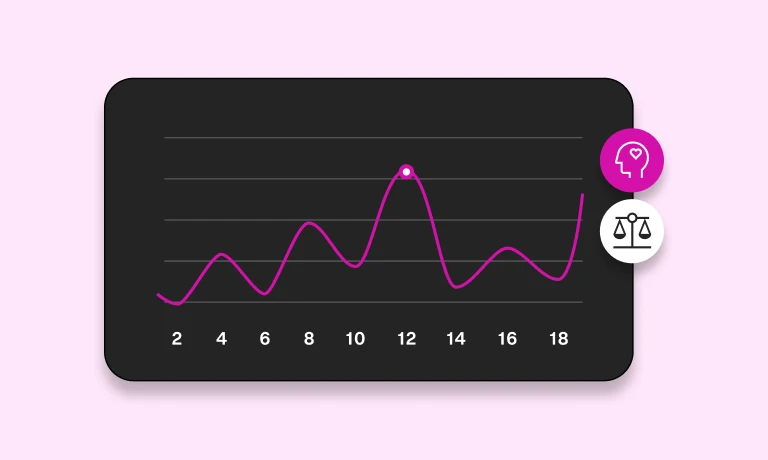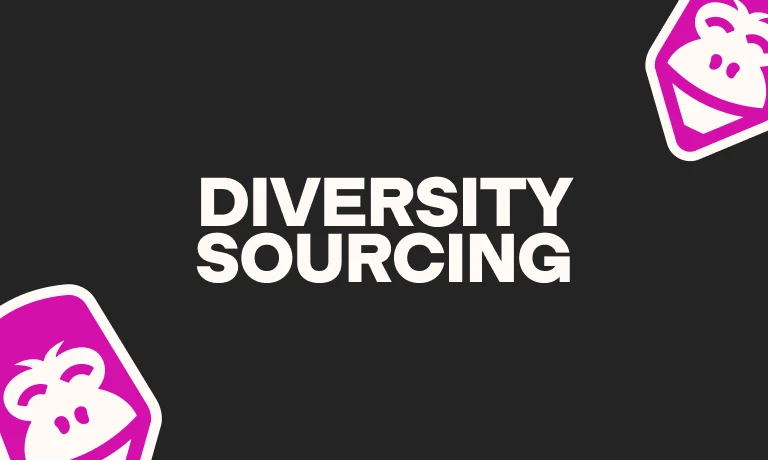A contract negotiator is vital in any organization, serving as the bridge between a company and its partners or clients.
But drafting a job description that compels the best contract negotiators to apply is challenging. You might struggle to capture the intricate balance of legal expertise and strategic thinking required. Or, you might not accurately convey the role's demands.
On the other hand, a well-written job description ensures applicants are well-versed in industry-specific contract negotiations and helps find knowledgeable candidates who can handle the job’s duties.
In this article, we explain how to create a job description that clearly defines the requirements of a contract negotiator role. Plus, we share a handy template for your use.
Table of contents
- What is a contract negotiator?
- Key skills to look for in a contract negotiator
- How to write an effective contract negotiator job description
- Contract negotiator job description template
- 3 things to avoid when writing a job description for a contract negotiator
- Next steps: Attracting and assessing contract negotiator candidates
- FAQs
- How TestGorilla can help you find the best contract negotiators
What is a contract negotiator?
A contract negotiator handles negotiations and finalizes contracts for an organization. This role involves skillfully mediating terms and conditions, ensuring legal compliance, and achieving favorable outcomes.
Negotiators are critical in many sectors, from government to private industry. Their expertise shapes successful agreements with suppliers, clients, and partners.
They play an important role in maintaining and forging beneficial business relationships while safeguarding the company's interests and mitigating risks.
Key skills to look for in a contract negotiator
Here are some vital skills a contract negotiator must have:
Hard skills:
Legal and regulatory knowledge: In-depth understanding of contract law, legal terms, industry-relevant regulations relevant to the industry, and – if applicable – international law
Contract drafting and review: Expertise in creating and scrutinizing contract documents, ensuring they’re comprehensive, accurate, and tailored to the organization's needs
Financial acumen: Proficiency in understanding and analyzing the financial aspects of contracts, including budgeting, cost-benefit analysis, and the economic impact of contract terms
Risk management: Ability to identify potential risks in contract terms, judge their impacts, and develop strategies to mitigate them effectively
Soft skills:
Advanced negotiation skills for negotiating contract conditions, balancing firmness and flexibility, and securing good outcomes while maintaining positive relationships
Interpersonal skills for building rapport, trust, and understanding with diverse stakeholders, suppliers, clients, and internal teams
Verbal and written communication for articulating contract terms, negotiation positions, and complex ideas clearly to all stakeholders
Problem-solving abilities for identifying issues during negotiations and creatively developing solutions that satisfy all parties
Adaptability and resilience for dealing with changing circumstances – including challenges or setbacks – during negotiation
The best insights on HR and recruitment, delivered to your inbox.
Biweekly updates. No spam. Unsubscribe any time.
How to write an effective contract negotiator job description
Follow these four best practices to create a job description that reflects the demands and nuances of a contract negotiator role and attracts the right candidates.
1. Detail specific legal and industry requirements
Be precise about the specific legal knowledge and industry regulations the candidate must know to work for your company.
Companies hiring for a technology firm, for instance, might say that "candidates must have proven experience in negotiating technology-related contracts and a thorough understanding of intellectual property law."
2. Emphasize the balance of hard and soft skills
Highlight that both technical skills (like contract drafting and financial analysis) and interpersonal skills (such as communication and negotiation) are essential in this role. Explain how negotiation skills are applied at your company and how.
For example, perhaps you require your contract negotiator to possess a combination of financial analysis (a hard skill) for identifying key cost-saving clauses and emotional intelligence (a soft skill) for controlling their emotions while understanding others’ emotions. If so, include these skills and their purposes.
3. Highlight specific responsibilities and expectations
Offer a detailed description of daily tasks and long-term expectations. This might include overseeing the entire contract lifecycle from drafting to negotiation to renewal.
This lets candidates know what they can expect. This way, candidates who know they can’t keep up with the role’s demands won’t apply. Meanwhile, candidates who appreciate clear role descriptions and feel confident in their abilities to perform responsibilities and meet expectations will.
4. Include realistic job challenges and opportunities
Address the unique challenges and opportunities of the role. Be explicit about the complexities and high-pressure situations the role entails. This gives candidates a realistic view of the position.
For example, you might say, "The role demands navigating complex, multi-party negotiations under tight deadlines, requiring quick decision-making and resilience under pressure."
Providing a balanced view of the role can attract candidates excited about the prospect of overcoming challenges.
Contract negotiator job description template
Here's a customizable job description template you can use to get the best candidates.
Company introduction
Start with basic company information, including its services, mission, work culture, and goals. Detail how collaborative and inclusive your work culture is and mention any recent awards or achievements.
Highlight how a contract negotiator fits into your organization and how their skills can help your company succeed.
Benefits of working with [your company]
List the benefits for contract negotiators at your company. Include specific benefits that would appeal to these candidates. Examples might include:
Performance-based incentives that recognize the direct impact of successful negotiations on company growth
Comprehensive legal-specific training and development programs
Access to legal resources and tools that facilitate efficient and effective contract analysis
Opportunities to attend industry conferences and workshops for enhancing negotiation skills and legal knowledge
Other benefits to include might entail flexible work, generous vacation, and supportive work-life balance policies.
Contract negotiator job brief
[Company name]
Job title: Contract negotiator
Reports to: [For example, Director of Procurement, Chief Legal Officer, or Vice President of Operations]
Location: [For example, remote, hybrid, or on site (include address if applicable)]
[Salary range]
Responsibilities and duties
Lead and manage contract negotiations, ensuring they meet company standards and objectives.
Draft, review, and modify contractual agreements to guarantee optimal terms for the company.
Collaborate with legal and procurement departments to align contract terms with laws, regulations, and business goals.
Analyze and mitigate risks associated with contract terms and negotiations.
Maintain up-to-date knowledge of industry-specific regulations and ensure all contracts adhere to these standards.
Maintain strong relationships with partners and stakeholders.
Guide junior staff members in contract negotiation and management.
Skills and qualifications
Required skills and experience
Bachelor's degree in law, business administration, or a related field (or equivalent experience)
Proven experience in contract negotiation, preferably in [specify industry if relevant]
Deep understanding of contract law and legal terminology
Excellent analytical, negotiation, and decision-making skills
Strong communication and interpersonal skills for managing relationships with key stakeholders
Proficiency in contract management software and Microsoft Office Suite
Preferred skills and experience
Advanced degree or certification in contract management or a related field
Experience with international contracts and cross-border negotiations
Ability to work independently and manage multiple contract negotiations simultaneously
Keen attention to detail and high-level organizational skills
3 things to avoid when writing a job description for a contract negotiator
Here are three mistakes to avoid when writing your contract negotiator job description.
1. Lack of clarity on contract types
Avoid being vague about the types of contracts the negotiator will handle. Different contracts come with unique sets of challenges and requirements.
For instance, a contract negotiator in the technology sector might deal with software licensing agreements and service level agreements. Conversely, a negotiator in the construction industry must know about project contracts, supplier agreements, and labor contracts.
Not specifying these details could result in a longer ramp-up time for new hires and potentially lead to costly mistakes.
2. Omitting negotiation styles
Addressing the preferred negotiation styles that align with your company's strategy and culture is crucial.
Negotiation styles range from highly competitive to more collaborative. Failing to specify the preferred styles in the job description can result in hiring candidates whose natural or preferred negotiation style(s) may clash with the established practices. This includes candidates who can’t adopt the negotiation styles your company needs on a situation-by-situation basis.
For example, if your company operates in a highly competitive industry where aggressive negotiation tactics are the norm and short-term gains are often prioritized, you should state this. In this scenario, you need a negotiator who’s comfortable and skilled in high-pressure situations, can make quick, strategic decisions, and is adept at competitive bargaining.
3. Ignoring your organization’s dynamics
Every company has its unique culture and operational style. Not mentioning how a contract negotiator fits into your company's broader structure can lead to a mismatch in expectations.
For instance, if your organization values collaborative decision-making, add it to the job description to draw in candidates who excel in a collaborative environment.
Next steps: Attracting and assessing contract negotiator candidates
Once you've written your contract negotiator job description, post it on job boards, social media, and relevant networks. After receiving applications, assess potential hires’ skills.
TestGorilla offers hundreds of skills tests, and you can use the following role-specific tests to evaluate applicants for the contract negotiator position:
Negotiation skills test: Evaluates candidates' abilities in business negotiations to get desired results and advocate for business interests
US Contract Law test: Tests skills like contract formation, contract termination, and interpretation of contract terms
Intellectual Property (IP) Law: Covers legal principles, analytical skills, and IP contracting
International Trade Law test: Tests candidates' knowledge of international trade law practices, institutions, and organizations
Communication skills test: Checks how well candidates can communicate in a professional setting
Pair these tests with other tests – including our personality and culture assessments – to get an overall picture of your candidates.
With TestGorilla, you can create custom talent assessments by combining 1-5 tests. You can even add your own questions to further customize the assessment to your role.
FAQs
What are the different negotiation styles?
Negotiation styles are approaches individuals use to reach agreements. The five main styles are competitive, collaborative, compromising, avoidant, and accommodating. Each style is suited to different negotiation contexts and objectives.
Do contract negotiators each have one negotiation style?
While candidates might gravitate towards a certain style or styles, strong negotiators can often adopt all five. In an article for Contract Nerds, Marlene Eisenberg, who has extensive background leading legal teams, says, “With well-thought-out strategies, contract negotiators can plan when to use certain styles to achieve results.”
How TestGorilla can help you find the best contract negotiators
Contract negotiators must have a delicate balance of legal expertise, financial understanding, strategic thinking, and exceptional interpersonal skills. A good job description can help you find a contract negotiator who can effectively represent your company's interests and contribute to its long-term success.
TestGorilla has hundreds of tests that can streamline candidate evaluations. You can examine applicants' legal knowledge, negotiation styles, and personality traits accurately and without bias.
Get started with TestGorilla by watching a live demo or signing up for a free account today!
You've scrolled this far
Why not try TestGorilla for free, and see what happens when you put skills first.


















